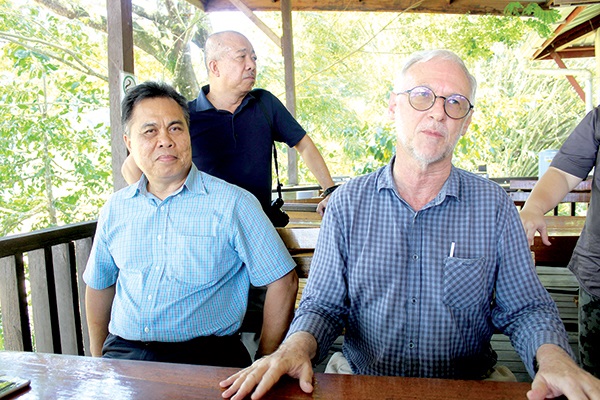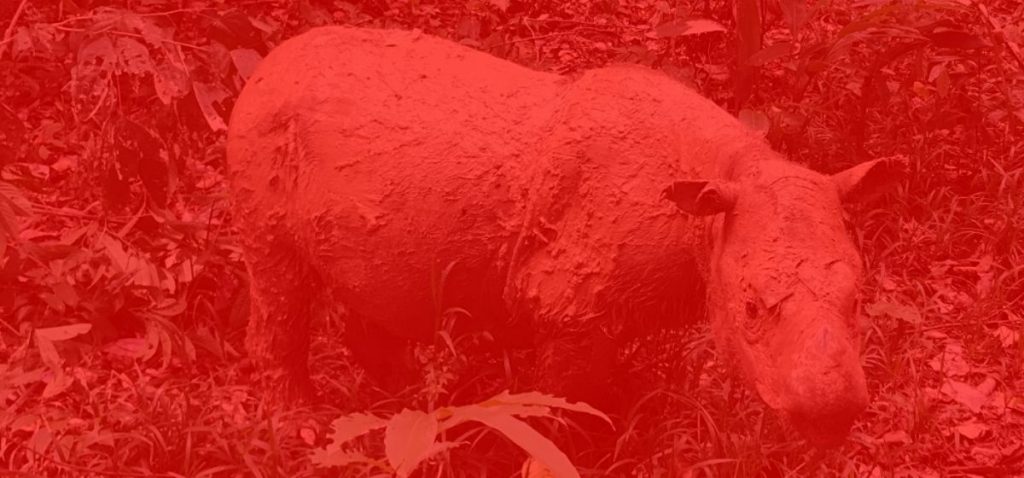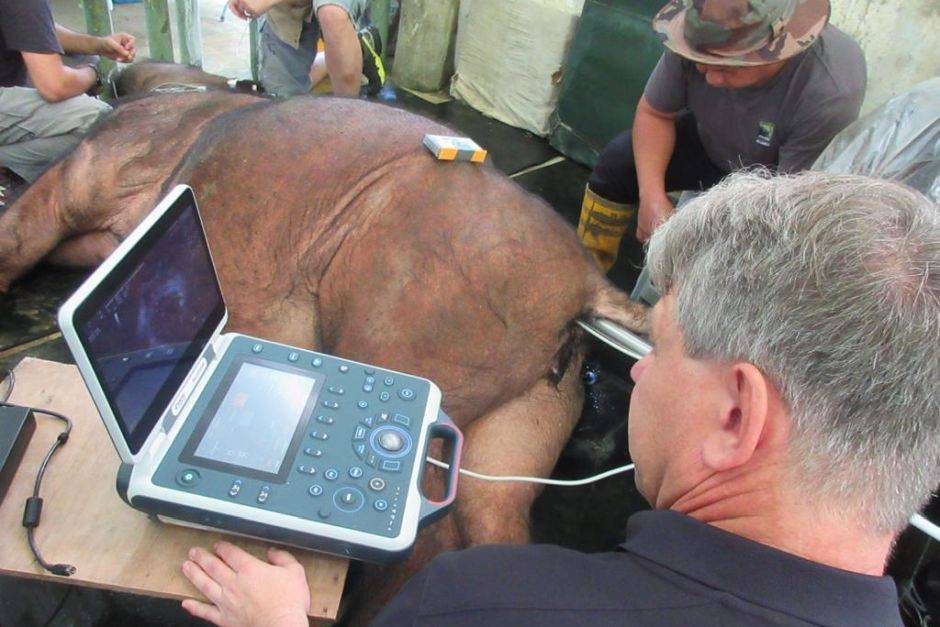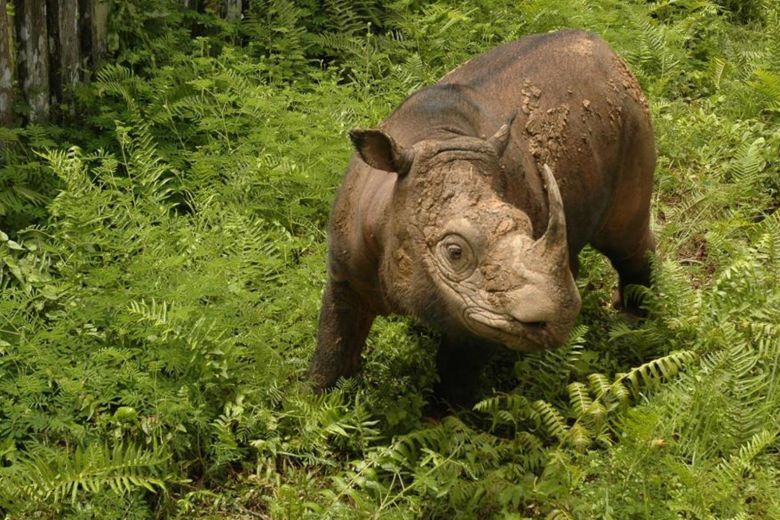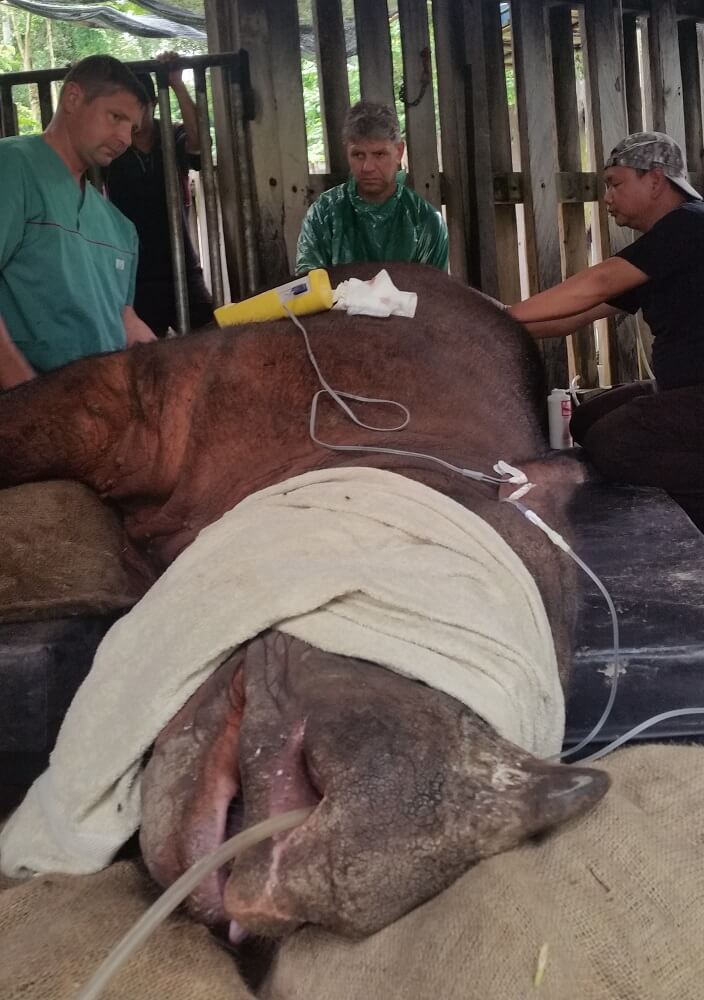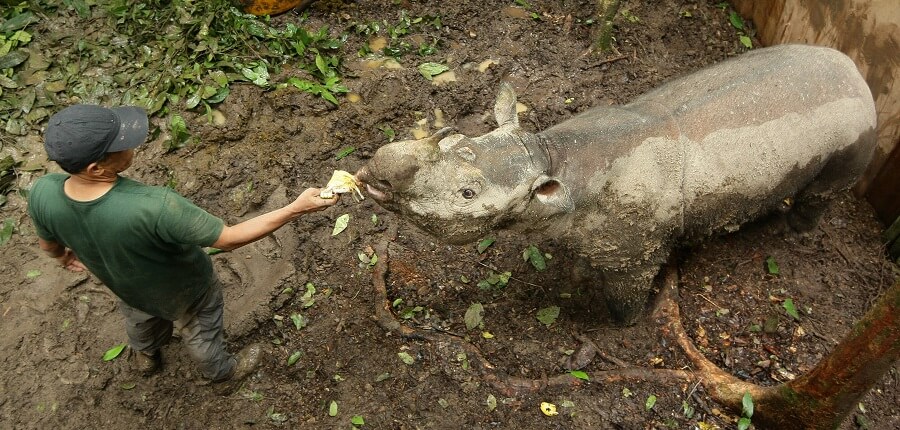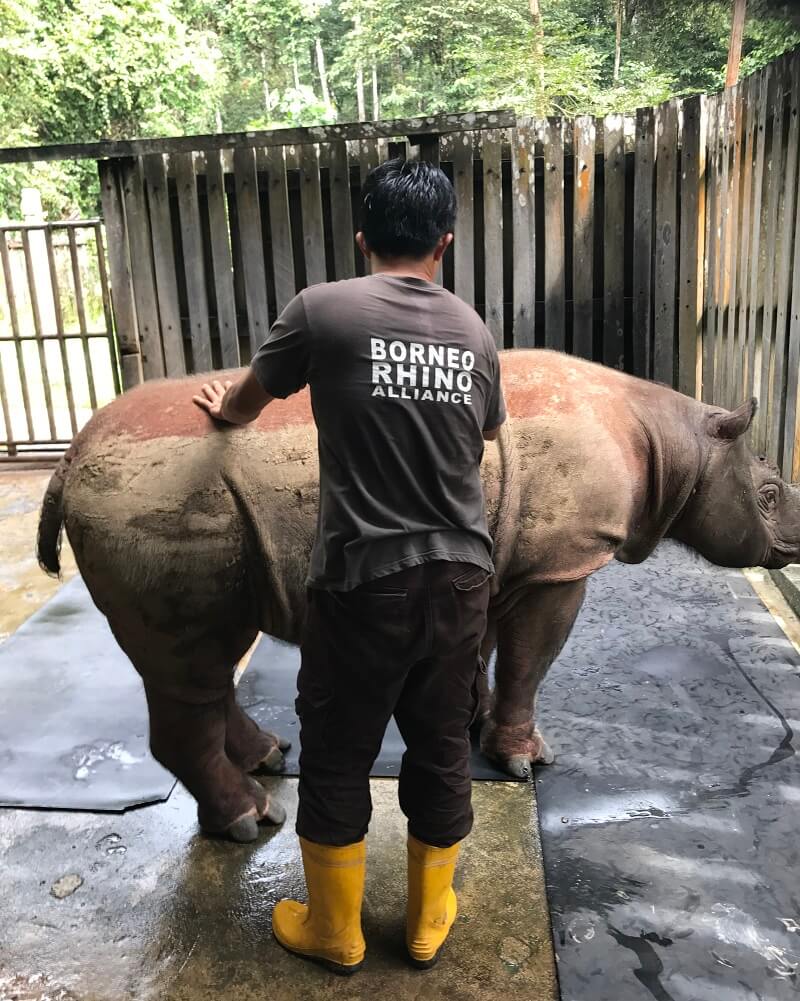Daily Express 27 Nov 2019 KOTA KINABALU: Former WWF Sabah Director Datuk John Payne (pic) said there were many missed opportunities to save the Sumatran rhino. Sabah’s last known Sumatran rhino, Iman, died last Saturday and questions were raised as to how the beast that managed to survive for millions of years in Sabah’s primeval forests was allowed to become extinct.“In 1980 IUCN experts discouraged Sabah from capture of rhino because it was considered too risky,” Payne said.
“They advised that only ‘doomed Sumatran rhinos, that is, the old, sick and isolated rhinos be captured for globally managed population breeding programme,” he said, adding that a proposal by the late Tom Foose of American Association of Zoos and Aquariums to initiate advanced reproductive technology for the species was also ignored. The idea was to send a Sabah rhino to America for captive breeding – everything thing was signed and agreed under the Berjaya Government but hue and cry followed a change of government (PBS) and the whole so-called Borneo Project was scuttled. With Sabah rebuffing the idea, Foose approached Indonesia and arrangements with Cincinnati Zoo under Dr Terry managed to sire two male rhino plus a third in Indonesia itself.
“In 2000, a warning by Nan Schaffer that over 70pc of female Sumatran rhinos have reproductive pathology was again ignored and later dubbed by the International Rhino Foundation as a Malaysian problem,” Payne said. Then in March 2012, a letter of intent for collaboration signed in the Indonesian Ministry of Forestry but was ignored until this day. “Between 2013 and 2019, repeated offer from Malaysia including sending Tam and eggs from Iman and Puntung were met with no response from Indonesia,” he said. He said in 2005, female Rosa, captured in Sumatra and never bred now has lelomyoma like Iman but there were no attempts to harvest her eggs or try IVF or artificial insemination. It is a pity that only hesitant and basic attempts at any aspect of advanced reproductive technology had occurred. “Again in November 2018, female Pahu was captured in East Kalimantan but until now there is no action to make use of her genome towards saving the species ,” Payne said.
Read the Daily Express article here
